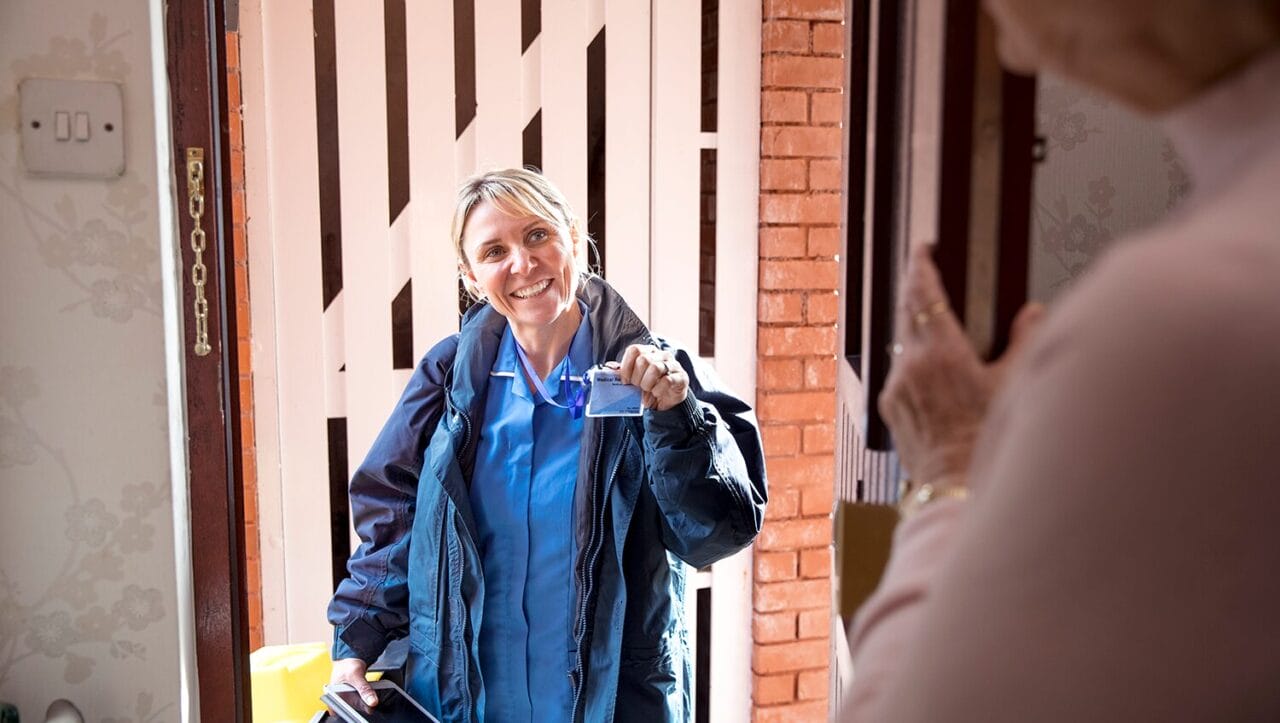Addressing Social Determinants of Health Is Critical In Curbing Opioid Overdose Deaths, Study Finds
October 5, 2023

Getty Images
Research from Boston Medical Center shows a 21% reduction in overdose deaths in communities that address social needs as a part of post-overdose outreach programs.
The Bottom Line
New research shows a 21% reduction in fatal overdose rates in Massachusetts cities that offer post-overdose outreach programs that provide connections to a wide range of social services to address social determinants of health.
Context
In response to this wave of the opioid overdose epidemic and to reduce the risk of fatal overdoses, post-overdose outreach programs have been cropping up in communities across Massachusetts. Post-overdose outreach programs — often partnerships between public health and public safety departments — seek to connect overdose survivors with naloxone, overdose education, and treatment ,but outreach strategy and methods vary widely by municipality. This latest research builds on previous research on post-overdose outreach programs, which was also led by these same researchers from Boston Medical Center. Earlier in 2023 these researchers found that Massachusetts communities with any post-overdose outreach program resulted in a 6% reduction in opioid overdose deaths, as compared with communities that had no post-overdose outreach at all. This latest research underscores the importance of post-overdose outreach, while also highlighting the need for building in social service support to that programming.
Study Objective
To find if post-overdose outreach programs that offer social services are more effective in reducing overall overdose deaths.
The Details
Researchers studied 58 Massachusetts municipalities with post-overdose outreach programs, examining five key components of post-overdose outreach programs and comparing that with rates of fatal opioid overdoses and opioid-related EMS calls. The components include: outreach contact rate; naloxone distribution; coercive practices; harm reduction activities; and social service provision or referral. The authors call for more research to determine how post-overdose outreach programs can most effectively reduce overdoses and engage survivors in effective treatment and prevention.
Findings
Municipalities with programs providing or referring to more social services experienced 21% fewer fatal overdoses compared to municipalities that do not provide or refer to social services. Unlike the efficacy of social service connections, the study found no significant associations between outreach contact rate, naloxone distribution, coercive practices, or harm reduction activities with fatal overdose trends by municipality. However, the authors suggest access to social services might improve survivor engagement in overdose-related services like naloxone and medications for opioid use disorder.
Pull Quote
“Post-overdose outreach programs are an emerging strategy to prevent fatal overdoses for people who have survived an overdose,” said senior author Alexander Walley, MD, of the Clinical Addiction Research and Education Unit at Boston Medical Center’s Grayken Center for Addiction and Professor of Medicine at Boston University Chobanian & Avedisian School of Medicine in a recent press release. “To best intervene, we need to understand what characteristics of these programs work, and which ones don’t. This study suggests that access to housing, food, employment and transportation may be key in the success of these programs.”
Kimmel S, Xuan Z, Hallowell B, Yan S, Lambert A, Formica S, Green T et al (2023). “Characteristics of post-overdose outreach programs and municipal-level opioid overdose in Massachusetts.” International Journal of Drug Policy.
Share on Social
Subscribe to HealthCity’s Newsletter
HealthCity elevates the conversation around issues of equity in healthcare. | Sent biweekly.
© 2026 HealthCity. All rights reserved.


